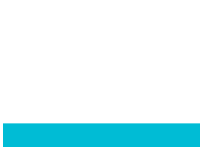When it comes to saving for big financial goals like buying a house, it’s easy to underestimate the impact of small, everyday spending. Many of us fall victim to what’s known as the 'lipstick effect'—a term used to describe how people justify small impulse purchases that, over time, add up. In this post, we’ll explore how these small habits can significantly hinder your ability to save, and share some key tips on how to change your spending habits to bring property ownership within reach.
The Lipstick Effect: How Small Purchases Add Up
The 'lipstick effect' refers to the small, seemingly harmless purchases that we make without much thought. Whether it's a daily coffee, takeaway lunch, or an impulse buy while shopping, these expenses can slowly chip away at your savings. While each purchase might feel insignificant at the moment, the cumulative effect over time can become a significant barrier to achieving your larger financial goals, like saving for a home deposit.
For example, let’s say you spend $5 on a coffee each day. That may not seem like much, but over a year, that habit could cost you around $1,825—money that could have gone toward your savings for a deposit or home expenses.
Think of this way: With Only $10K and $379 Per week, you can secure 1 bedroom in Granville Today
Key Tips for Changing Your Spending Habits
To make property ownership a reality, it’s important to rethink how you approach your everyday spending. Here are some practical tips to help you manage your finances more effectively:
- Track Your Spending: Awareness is the first step to making meaningful changes. Take a close look at your daily, weekly, and monthly expenses to see where your money is going. You might be surprised at how much small, impulse purchases are adding up.
- Set Clear Savings Goals: One way to stay motivated is to set specific savings goals. Instead of thinking of saving as a vague concept, calculate exactly how much you need for a home deposit and break it down into manageable chunks. This will give you a clear target and a reason to curb unnecessary spending.
- Create a Budget: A solid budget is essential for keeping your spending in check. Allocate your income toward essentials, savings, and a reasonable amount for discretionary spending. Having a structured plan will help you avoid overspending and ensure you're consistently contributing to your savings.
- Use Automation: Setting up automatic transfers to a savings account can be a great way to ensure that a portion of your income goes directly toward your deposit fund, without the temptation to spend it. This 'out of sight, out of mind' approach can be an effective strategy for building savings over time.
- Reassess Your Priorities: Take a step back and evaluate what’s more important—those small, impulse buys or reaching your property goals. Reassessing your financial priorities can help you make better decisions that align with your long-term objectives.
Navigating the Real Estate Market and Borrowing Challenges
In addition to changing your spending habits, it’s important to stay informed about the current real estate market and borrowing environment. Right now, challenges such as rising interest rates and tighter lending criteria can make it more difficult to secure a home loan, but there are ways to navigate these hurdles.
- Work on Your Credit Score: A strong credit score can improve your chances of securing a favorable home loan. Make sure to pay your bills on time, reduce existing debt, and avoid taking on new credit that could negatively impact your score.
- Get Pre-Approval: Before you start seriously shopping for a home, it’s a good idea to get pre-approval for a mortgage. This will give you a clear idea of how much you can borrow and help you focus on properties within your budget.
- Stay Informed on Government Schemes: In some regions, there are government schemes designed to help first-time homebuyers. These programs may offer grants, reduced deposit requirements, or other incentives that could make property ownership more accessible.
Saving Smarter for Your Dream Home
Saving for a home doesn’t have to mean sacrificing all of life’s little pleasures, but it does require a mindful approach to spending. By tracking your expenses, setting clear goals, and adopting smart saving strategies, you can take control of your finances and bring homeownership within reach.
Small changes in your day-to-day spending can have a big impact on your long-term savings. Reassessing how you spend and focusing on your larger financial goals, like buying a property, can set you on the path to success. Combine these efforts with an informed approach to the current real estate market and borrowing challenges, and you’ll be well on your way to securing your dream home.




